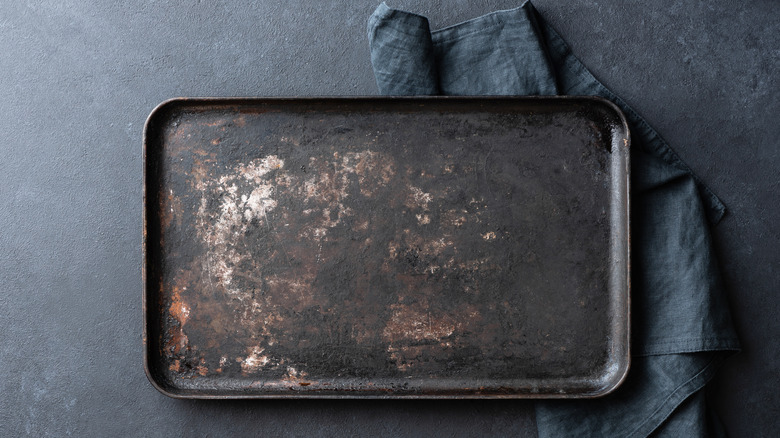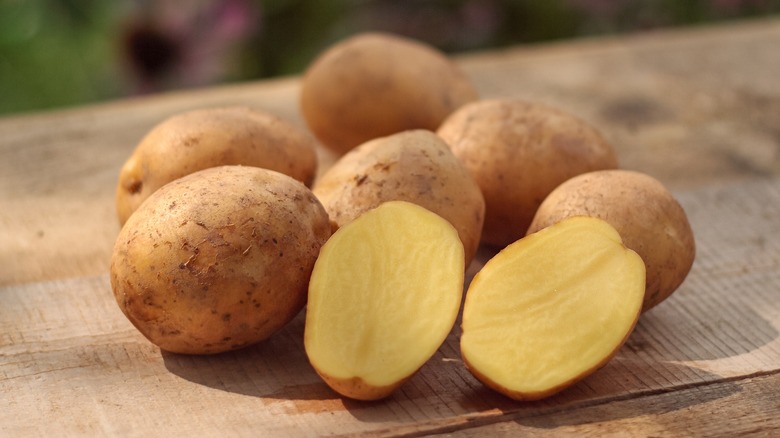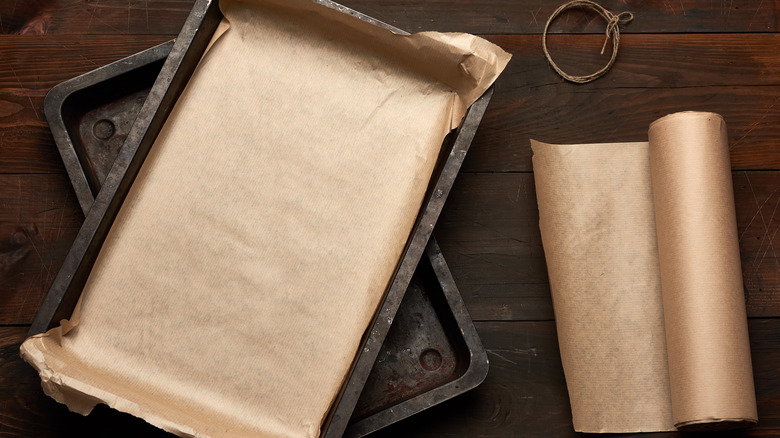The Simple Potato Hack For Cleaning Rusty Baking Sheets
Like most kitchen tools, baking sheets are prone to wear and tear and can develop scratches, rust, or dents over time. Rust is usually due to improper cleaning or excess moisture, but you can remove it quite easily. All you need is a potato and vinegar, and baking soda, or salt. The oxalic acid in potatoes can dissolve rust and stains, leaving your baking sheets clean. Sweet potatoes are even higher in this compound.
First, you'll cut a potato in two and dip one half in salt. Meanwhile, clean your baking sheets with water and soap to remove grease and food residues. Pat them dry, and then rub the rusty areas with the potato half you dipped in salt. Repeat as many times as needed. When you're done, rinse the baking sheets with water.
This simple potato trick can eliminate the rust on your cast iron, too. However, that's just one way to use a potato to clean rust stains — and some methods may work better than others.
Try this potato hack to remove rust from your baking sheets
The hack described above should do the trick, but you can also use a potato with baking soda or other products to get rid of that pesky rust. For example, white vinegar can dissolve rust, grease, and other debris due to its acidity. Salt is a natural abrasive, while baking soda can remove light rust stains.
What you should do is sprinkle baking soda over your baking sheet. After that, scrub the rusted areas with a potato half until the stains are gone. Alternatively, combine baking soda and water to make a paste. Apply it to the areas you want to clean, let it sit for a few minutes, and then scrub it with the potato.
For stubborn rust stains, submerge the baking sheet in a sink filled with warm water. Add equal parts of vinegar and baking soda, wait for an hour or so, and then rub half of a potato over the rusted areas. While it's true that you could also use a scouring pad, the oxalic acid in potatoes can remove rust more efficiently. Plus, scouring pads can cause damage to the surface of the baking sheet.
The humble potato is safer than conventional rust removers
The rust on cookware doesn't pose health hazards, according to the University of Illinois at Urbana-Champaign. But even so, it's unsightly and can make its way into your food. Anti-rust products are effective but may cause toxicity if ingested or inhaled. In severe cases, they may lead to vision loss, burns, kidney failure, difficulty breathing, and other symptoms, warns MedlinePlus. Given these risks, it makes sense to use a natural cleaning solution, such as potatoes and salt or baking soda.
Once your baking sheets are free of rust, cover them with aluminum foil or parchment paper when cooking. Silicone baking mats will do the trick, too. These products will protect the baking sheets and make cleaning easier. They act as a barrier between the food and the metal, which may help prevent rusting.
You'll also want to avoid these mistakes that could ruin your baking sheets. For example, harsh cleaners can damage their protective coating, causing rusting in the long run. Similarly, using metal utensils or cutting directly on the baking sheet can scratch its surface, leaving it prone to rust.


